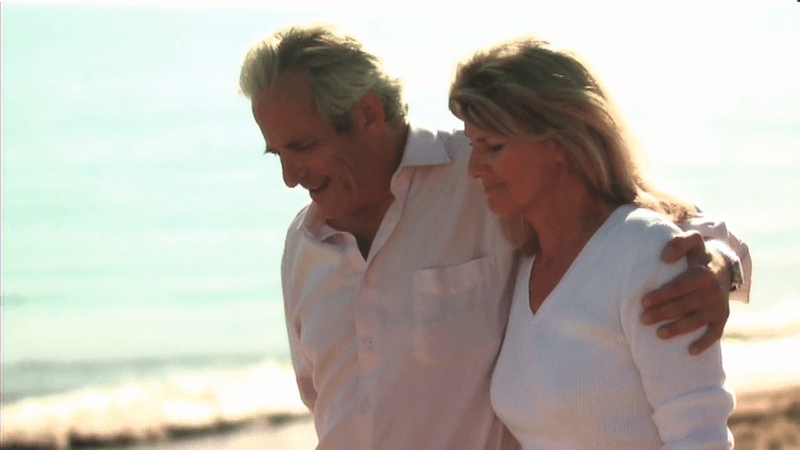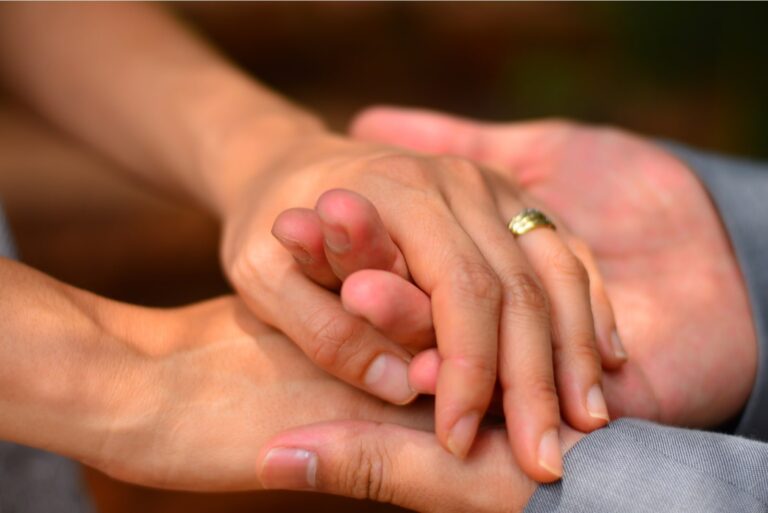35 Honest Things Older Women Regret Most About Their Relationships
Wisdom doesn’t just come from age—it comes from experience. And when older women look back at their relationships—marriages, long-term love, or situationships—they don’t always mourn what ended…
They often grieve what they ignored, tolerated, gave up, or never asked for.
These regrets aren’t about beating yourself up. They’re about naming the patterns so future choices feel more honest, free, and full of self-respect.
Here are 35 of the most common (and painfully honest) relationship regrets older women share—in their own words, their own reflections, and hard-earned truths.
1. Ignoring Red Flags

“I ignored the red flags in the beginning.” Because love, hope, or loneliness convinced me they’d go away. We often believe in the potential rather than the reality standing before us. Those little signs that something isn’t right get brushed aside, as we hold onto the possibility of change.
Our hearts often write checks that reality can’t cash. I wish I had listened more to what my instincts were whispering, instead of silencing them with dreams of what could be.
2. Staying Too Long

“I stayed longer than I should have.” Hoping they’d change. Praying I would matter more. It’s a trap many of us fall into—waiting for a miracle that never comes. The fear of what’s outside the familiar can keep us in places that chip away at our happiness.
We watch the years slip by, clinging to the hope that someday things will be different. But that day often never arrives, and we’re left with the regret of lost time.
3. Promises Over Patterns

“I listened to promises instead of watching patterns.” And it cost me years. Words can be soothing but actions are telling. I found myself caught in the cycle of sweet promises that were never backed by real change.
It was easier to believe in their potential than to face the harsh truth. My heart was willing to give chance after chance, but the years taught me that actions speak louder than hollow words ever could.
4. Excusing Bad Behavior

“I excused behavior I would’ve warned my daughter about.” Because I thought love meant loyalty—at my own expense. In love, we often wear rose-colored glasses that blur the lines between right and wrong. Sacrificing our values becomes a misguided act of devotion.
I would warn my daughter, my friend, anyone else, but for some reason, I couldn’t heed my own advice. My need for connection overshadowed my self-respect, and that’s a lesson learned the hard way.
5. Ignoring Gut Feelings

“I dismissed my gut feelings.” They weren’t wrong. I just wasn’t ready to hear them. There’s an innate wisdom within us, a voice that quietly nudges us in the right direction.
But fear, doubt, and the desire to hold on can drown it out. When my gut tried to warn me, I chose to ignore it, convincing myself that I was just overthinking. In hindsight, that whisper was my inner truth, lost in the noise of denial.
6. Not Asking for Intimacy

“I didn’t ask for the kind of intimacy I actually needed.” I settled for physical closeness without emotional safety. Intimacy isn’t just about proximity; it’s about connection, understanding, and feeling cherished.
I found myself longing for a deeper bond, but I settled for what was there, fearing that my needs would be seen as too demanding. It’s a lesson in voicing what truly fulfills your heart rather than accepting the surface-level interactions.
7. Afraid to Speak Up

“I never said, ‘This isn’t enough for me.’” I was too afraid of being seen as needy. In relationships, we often silence our needs to avoid conflict or judgment.
But each unsaid word chips away at who we are, leaving us unfulfilled. I learned that expressing what I want doesn’t make me needy; it makes me honest. It’s a journey toward valuing my voice, understanding that my needs are as vital as anyone else’s.
8. Delayed Boundaries

“I didn’t set boundaries soon enough.” And when I finally did—it was too late. Boundaries are the invisible lines that protect our wellbeing, but they only work if they’re established early on.
I let things slide, thinking it was easier than confrontation, until I realized I was permitting behaviors that eroded my happiness. Once the line was crossed too many times, reclaiming my space felt like a losing battle. Boundaries are essential, and timing is everything.
9. Neglecting Own Needs

“I didn’t make space for my own needs.” I became so focused on keeping the peace, I abandoned myself. Sacrificing what I wanted for the sake of harmony seemed noble, but it left me feeling invisible.
It’s easy to lose yourself in the role of peacemaker, forgetting that your own needs deserve attention too. This journey taught me the importance of self-care and the realization that peace shouldn’t come at the expense of one’s identity.
10. Giving Up Voice

“I let them lead everything—even when I had a voice.” And now I wonder who I could’ve been if I’d spoken up more. In relationships, it’s easy to hand over the reins, thinking it’s easier to follow than to challenge the status quo.
But in doing so, I muted my own thoughts and desires. Looking back, I see how much was lost by not asserting myself. It’s a lesson in claiming my space and understanding that my voice matters.
11. Tolerating Emotional Neglect

“I tolerated emotional neglect and called it ‘normal.’” But silence in a relationship is loud. I became accustomed to the absence of connection, convincing myself that it was just how things were. Yet, deep down, I craved affection and understanding.
It’s a hard truth to face, realizing that I deserved more than to be overlooked. Emotional neglect shouldn’t be the status quo; relationships should be nurturing, fulfilling, and mutually supportive.
12. Explaining Worth

“I kept explaining my worth to someone who didn’t value it.” That was never love. That was me shrinking. Love should never require you to prove yourself repeatedly. I spent time trying to convince someone of my value, thinking that their recognition would validate who I am.
But love doesn’t demand justification. It’s a self-discovery journey where I learned that my worth isn’t defined by others but by my own understanding and acceptance of myself.
13. Carrying Emotional Weight

“I carried all the emotional weight.” While he coasted. While I crumbled. Relationships are partnerships, yet I found myself shouldering the emotional burdens alone. The imbalance left me weary, as I tried to hold everything together.
Realizing that it wasn’t sustainable, I now understand that sharing the load is essential. It’s about finding balance and ensuring both partners contribute to the emotional wellbeing of the relationship, rather than one carrying it all.
14. Confusing Stability with Safety

“I confused stability with safety.” Sometimes what feels ‘secure’ is actually just familiar pain. We cling to what’s known, fearing the unknown and mistaking it for safety. But stability isn’t synonymous with happiness. I stayed in situations that felt stable but were emotionally unfulfilling.
The lesson learned is that true safety lies in emotional security and genuine happiness, not just in the absence of change or disruption. It’s about seeking joy, not just comfort.
15. Abandoning Self for Peace

“I kept peace by abandoning myself.” But silence doesn’t protect you—it just delays the grief. Avoiding conflict seemed like the easier path, but at what cost? I learned that peace achieved through self-erasure is temporary and leaves a void within.
The internal struggle was real, and coming to terms with my needs was crucial. It’s about finding peace that doesn’t require losing oneself but rather embraces and nurtures one’s identity alongside harmony.
16. Remaining Unhappy Quietly

“I never said how unhappy I really was.” Because I didn’t think it would change anything. Silence became a defense mechanism, a way to avoid rocking the boat. But hiding my unhappiness didn’t make it disappear. It only grew louder in the quiet moments.
Speaking my truth felt daunting, but pretending to be content was far more exhausting. The courage to voice my unhappiness became a liberating step towards finding genuine joy and fulfillment.
17. Delayed Requests for More

“I didn’t say ‘I need more from you’ until it was over.” By then, I barely recognized myself. Staying silent about my needs created a chasm between us. I feared that asking for more meant risking everything, but in truth, staying silent cost me more than I anticipated.
When the relationship ended, I looked in the mirror and saw someone I barely knew. Voicing my needs was a necessary step in not just preserving the relationship, but myself too.
18. Keeping Quiet for Comfort

“I stayed quiet to keep him comfortable.” And became invisible in the process. In my attempt to make everything smooth and easy, I lost myself. Silencing my thoughts, my needs, and my wants seemed like the path of least resistance, but it made me fade into the background of my own life.
Learning to speak up was a reclaiming of myself, a recognition that comfort should not come at the cost of visibility and honesty.
19. Not Expressing Hurt

“I didn’t tell him how deeply he hurt me.” Because I didn’t think he’d care. The fear of being dismissed or the pain of confrontation kept my words trapped inside. But holding onto that hurt only deepened the wound.
I learned that expressing pain isn’t about expecting an apology; it’s about honoring my truth and allowing healing to begin. It’s a lesson in self-respect and the importance of voicing my feelings, regardless of the response.
20. Denial of Lack of Love

“I never said ‘This isn’t love.’” Because admitting that would’ve shattered everything I built. Denial can be a powerful shield, protecting us from truths we aren’t ready to face. I held onto the facade of love, fearing the collapse of my constructed world.
But love isn’t just about maintaining appearances; it’s about connection, respect, and genuine care. Acknowledging its absence was a painful but necessary step toward rebuilding my life on a foundation of truth.
21. Sacrificing Dreams

“I gave up dreams to make his happen.” And he didn’t even notice. It’s easy to put someone else’s ambitions before your own, thinking that love means sacrifice. But in doing so, I lost sight of my own dreams, the things that made my heart sing.
It was a bittersweet revelation that my support went unnoticed, leaving me with an emptiness that could’ve been filled with my own aspirations. I’ve learned that love should lift us both to our dreams, not just one.
22. Losing Friendships

“I gave up friendships because he didn’t like them.” And I didn’t realize how much I’d miss them. Friendships are the anchors in our lives, providing support, laughter, and love. But I let them slip away, prioritizing his comfort over my connections.
It was a lonely realization that the bonds I’d cherished were sacrificed in the name of relationship harmony. Reclaiming those friendships taught me the importance of nurturing all aspects of my life, not just the romantic ones.
23. Self-Erasure for Love

“I gave up pieces of myself over time—until I was a stranger to me.” And I called that sacrifice. It was self-erasure. In the quest for acceptance, I chipped away at my own identity, convincing myself that it was necessary for love.
But losing oneself is not an act of love; it’s an act of fear. Rediscovering who I am and embracing my true self became a journey of self-love, understanding that my identity is not expendable, even for love.
24. Lowering Standards

“I gave up my standards to stay loved.” But I wasn’t truly loved. I was tolerated. In the pursuit of companionship, I compromised on what I knew I deserved. It was a harsh realization that love should never mean settling for less.
I learned that true love respects boundaries, values, and standards. It’s about knowing that I am worthy of more than just acceptance; I deserve genuine affection and respect. Raising my standards became an act of self-love.
25. Silence Over Truth

“I gave up too much silence, and not enough truth.” Now I know: honesty is peace. Not conflict. Silence can feel like the path of least resistance, avoiding potential conflict. But it also means living half-truths, a life not fully mine.
I learned that honesty, though daunting, is the real harbinger of peace. Speaking my truth, with respect and love, allowed me to live authentically, finding peace in honesty rather than the quiet of unspoken words.
26. Not Learning Healthy Love

“I didn’t know what healthy love looked like.” So I accepted the bare minimum and called it ‘commitment.’ Without a clear understanding of what love should be, I settled for less. I believed that enduring was the essence of love, ignoring the emotional richness and support that defines a healthy relationship.
It’s a hard lesson to learn, but vital. Love should be nurturing, supportive, and empowering. Recognizing the difference has been a journey towards healthier, more fulfilling relationships.
27. Choosing Others Over Self

“I thought being chosen was the goal.” Turns out choosing myself was the real win. I spent years believing that love meant being selected, desired by another. But real love starts within, by choosing myself first.
It’s about understanding that my worth isn’t defined by someone else’s choice, but by my own self-love and acceptance. This realization transformed my relationships, guiding me to seek connections that uplift and honor who I am, starting with my own choices.
28. Permission to Leave

“I didn’t know I was allowed to leave.” Even if there wasn’t abuse. Even if it just didn’t feel right anymore. The idea of leaving felt forbidden, a betrayal of the commitment we made. But staying in a relationship that doesn’t nourish your soul is a greater betrayal to oneself.
Realizing that it’s okay to leave, that my happiness and fulfillment are valid reasons, was liberating. It’s about granting myself permission to seek joy without guilt or fear.
29. Misplaced Fixer Role

“I thought it was my job to fix him.” Spoiler: It never was. I believed that love meant mending the pieces of his life, taking on the role of savior. But love isn’t about fixing; it’s about supporting and growing together. Taking on the fixer role was exhausting and ultimately unrewarding.
The true lesson was understanding that I am not responsible for anyone else’s healing or happiness. Love should be a partnership, not a rescue mission.
30. Earning vs. Deserving Love

“I believed I had to earn love.” Now I know—real love doesn’t make you audition. I spent so much energy trying to prove myself worthy of love, measuring my actions against an invisible standard. But genuine love doesn’t require auditions or conditions.
It’s about acceptance, understanding, and sharing life authentically. I’ve learned to embrace love as a mutual journey, where both partners are valued for who they are, not what they can prove.
31. Self-Love Over Sacrifice

“I wish I loved myself as much as I tried to love him.” Self-love is the foundation of all healthy relationships. I poured so much energy into loving him, neglecting the most important relationship of all—the one with myself.
I’ve come to understand that self-love isn’t selfish; it’s necessary. It allows me to show up fully in relationships, without losing myself in the process. Loving myself first became a radical act of self-care and empowerment.
32. Questioning Love’s Impact

“I wish I had asked: ‘Is this love making me feel alive—or just less alone?’” Sometimes we mistake companionship for contentment. I found myself caught in the comfort of company, ignoring whether it truly nourished my spirit.
This question became pivotal in evaluating my relationships, understanding that love should invigorate, not just fill a void. It’s about seeking connections that bring joy and vitality, rather than simply staving off loneliness.
33. Peace Over Pretending

“I wish I knew sooner: peace is better than pretending.” Pretending masked my true feelings, creating a facade of contentment. But peace comes from authenticity, from living in alignment with my truth.
The journey towards self-discovery and honesty has been transformative, teaching me that real peace isn’t about keeping up appearances. It’s about embracing who I am, flaws and all, and living a life that reflects my true self. This realization became my guiding light.
34. Settling for Less Than Desired

Remember the time when choosing a partner felt like picking the best from what was available? Many older women find themselves reflecting on this notion of settling, rather than waiting for a connection that truly resonates.
Sometimes, the fear of being alone overshadowed the pursuit of deeper companionship. Realizing years later that fulfillment was sacrificed for mere presence can be a heavy burden, yet it’s a lesson in valuing authentic desires over societal timelines.
35. Prioritizing Partner’s Needs Over Self

In relationships, the delicate balance of give and take can often tilt unfavorably. Remember those moments spent prioritizing a partner’s dreams, often sidelining personal aspirations?
For many older women, this reflection brings a bittersweet realization of lost opportunities for self-growth. Rediscovering self-worth and nurturing one’s own dreams becomes an empowering journey, albeit one that often starts later than desired.







